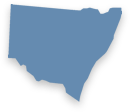Queensland Government Department of Agriculture and Fisheries, Media Release
July 2016
Biosecurity Queensland is urging alpaca owners to be aware of new biosecurity laws that commenced on 1 July 2016.
General Manager for Animal Biosecurity and Welfare, Dr Allison Crook, said it was important alpaca owners understood the new laws, particularly about moving alpacas across the tick line in Queensland and registering as an alpaca owner
“A new approach to managing cattle tick commenced on 1 July 2016,” she said.
“The new framework will provide more flexibility for low risk activities such as moving alpacas across the tick line,” Dr Crook said.
From 1 July 2016, part of Queensland has been designated as the tick free zone and the remainder as the tick infested zone. The tick line has been strengthened and simplified by removing the control zone and aligning the tick line with stronger, double fenced boundaries in some areas.
The new tick line map can be viewed at http://www.biosecurity.qld.gov.au.
Owners of low risk livestock, such as alpacas, will have an obligation to only move tick free animals into the tick free zone.
All alpaca owners will still have an obligation to report the presence of cattle tick in the tick free zone. Cattle tick infested properties in the tick free zone will need to ensure their livestock are tick free before they are moved and will need to eradicate ticks from their property.
Dr Crook said the property identification code (PIC) system would continue under the new legislation and changes to property registration would be minimal.
“If you keep an alpaca you are considered a registrable biosecurity entity and must register your details with Biosecurity Queensland from 1 July 2016.
“This is similar to the previous property registration requirements – the terminology of who must register is a little different, but what is considered a designated animal remains unchanged,” she said.
You must register if you keep:
- One or more cattle, sheep, goats, pigs, bison, buffalo, deer, members of the camel family (i.e. alpacas), members of the equine family
- 100 or more designated birds – those that are raised for human consumption (poultry) or the production of eggs for human consumption (e.g. chickens), or that have been released into free flight since they started being kept in captivity (e.g. pigeons)
- One or more bee hives.
For more information visit, https://www.business.qld.gov.au/industry/agriculture/animal-management/animal-register or call Biosecurity Queensland on 13 25 23.
 Login / Signup
Login / Signup Regions
Regions







 Search
Search